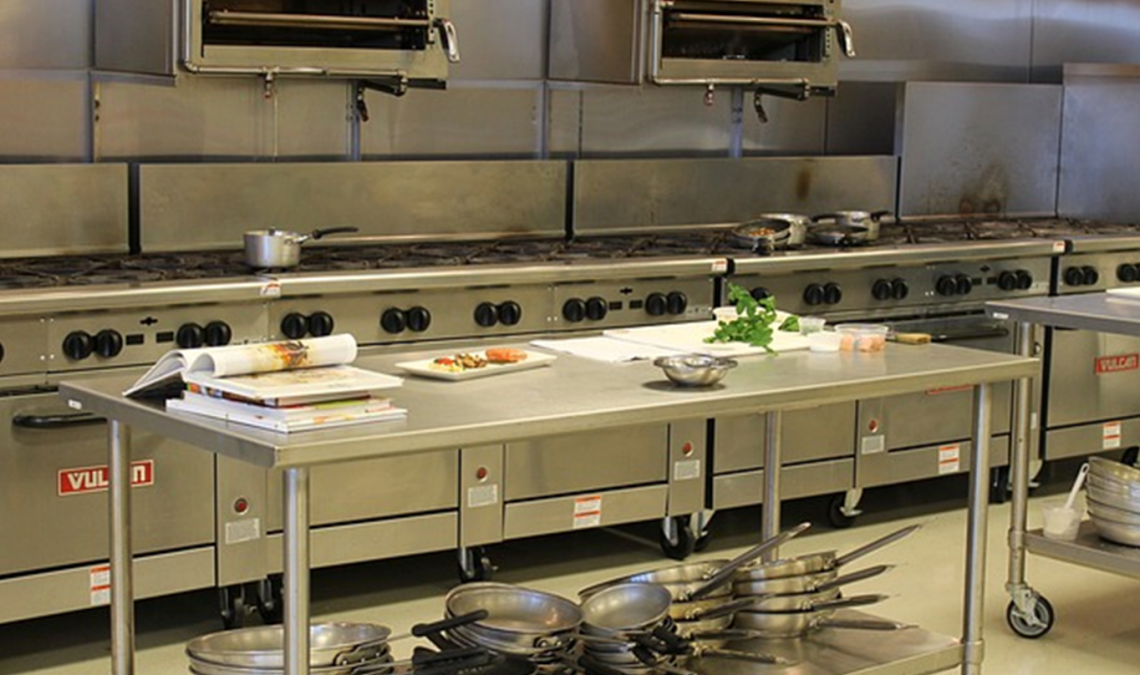
Setting up a commercial kitchen may not be the cheapest endeavour you’ll ever take on. That’s because quality kitchen equipment can be expensive, especially since you will need a wide range of appliances and machines all at once.
In addition to the initial expenses, there’s also the regular maintenance to consider. In some instances, you will have to deal with commercial refrigeration repair and replacements of other appliances. Successful kitchen owners all agree that planning and clever budgeting is the key to staying on top of things.
Planning, Budgeting and Preventative Maintenance
When you’re setting up your commercial kitchen, it’s essential to keep in mind that your equipment will need to be maintained to ensure an optimal lifespan. Our team of experts have compiled a list of the best ways to ensure that you can afford to do this when you need to.
1. Create a Planned Maintenance Schedule
The first step toward keeping a handle on your kitchen maintenance is to develop a schedule for regular maintenance. Do this with a local repair agent that’s certified to work on your specific equipment.
This will help identify any potential repairs before they become critical. Ultimately, this will reduce your repair costs and avoid unnecessary downtime. Schedule maintenance for days and times when your kitchen isn’t busy.
2. Set up a Maintenance Fund
Never approach maintenance with a “deal with it when it happens” mindset. Keep in mind that profit margins can be slim in the first months of your business. When you’re dealing with the various factors that impact food and general running costs, you may not always have funds available for maintenance.
Overcome this challenge by creating a maintenance account. Keep this account separate from the general business account to avoid the money being used for other aspects in the kitchen.
Be sure to deposit money into this account monthly, and on good months, increase your deposits. This will ensure that you always have funds available for those unforeseen repairs, regular maintenance and unplanned replacements.
3. Understand the Various Service Plans and Warranties
If you’re buying new equipment, these units will come with warranties and in some cases, service plans. It’s essential to research the criteria for these warranties to have a clear understanding of what’s covered by the manufacturer and for how long.
It’s essential to point out that these warranties differ between types of equipment, models, and brands. You may find that an item has a 5-year warranty, which means you could be covered for certain repairs and maintenance aspects. This will go a long way toward saving money in the long run.
Always deal with repair agents who are certified and accredited with each specific manufacturer. This will ensure that you are having the repair done by an expert who knows where to source the correct components.
4. Have Your Existing Equipment Evaluated
You may not be starting your business with all new equipment. In fact, you may already have had appliances on hand or even bought them secondhand. To avoid having these products break down at the most inopportune time, create a separate maintenance schedule for them.
It’s a good idea to have these items assessed by your repair agent and consider replacing older models as profits increase. Keep an eye on supplier promotions to enable you to take advantage of sales and promotions.
5. Include Staff Training in the Process
Kitchen equipment very rarely stops working from one minute to the next. There are almost always signs that something is starting to go wrong. Train your employees to look out for signs that could indicate a brewing issue. These often include the following:
- Unusual noises
- Vibrations
- Variations in temperature
- Getting unusually hot when in use (usually applies to smaller appliances)
- Shutting down for no reason
Teaching your staff what to look for will help prevent irreparable damage or total shutdown. Repairing a machine when it shows first signs of being faulty results in fewer components needing repair. It’s also more cost-effective to replace one small part than a whole machine.
6. Consider Leasing Equipment
In some instances, you may not be able to immediately replace irreparable machinery. An option to consider is equipment rental. An advantage of this is that the repair and maintenance costs are often included in the lease agreement. This is a good option to consider in the early days of your business.
Not having to spend a significant amount of capital all at once will enable you to build up your maintenance savings. Once you have enough money saved up, you can start buying your own equipment. This also gives you more time to find quality machinery with good warranty options.
Final Thoughts
Commercial kitchen equipment plays a significant role in the success of your business. Use our suggested steps to keep your machines and appliances maintained. Clever budgeting and planning combined with preventative maintenance will ensure that you always have funds available to keep your kitchen running smoothly!


